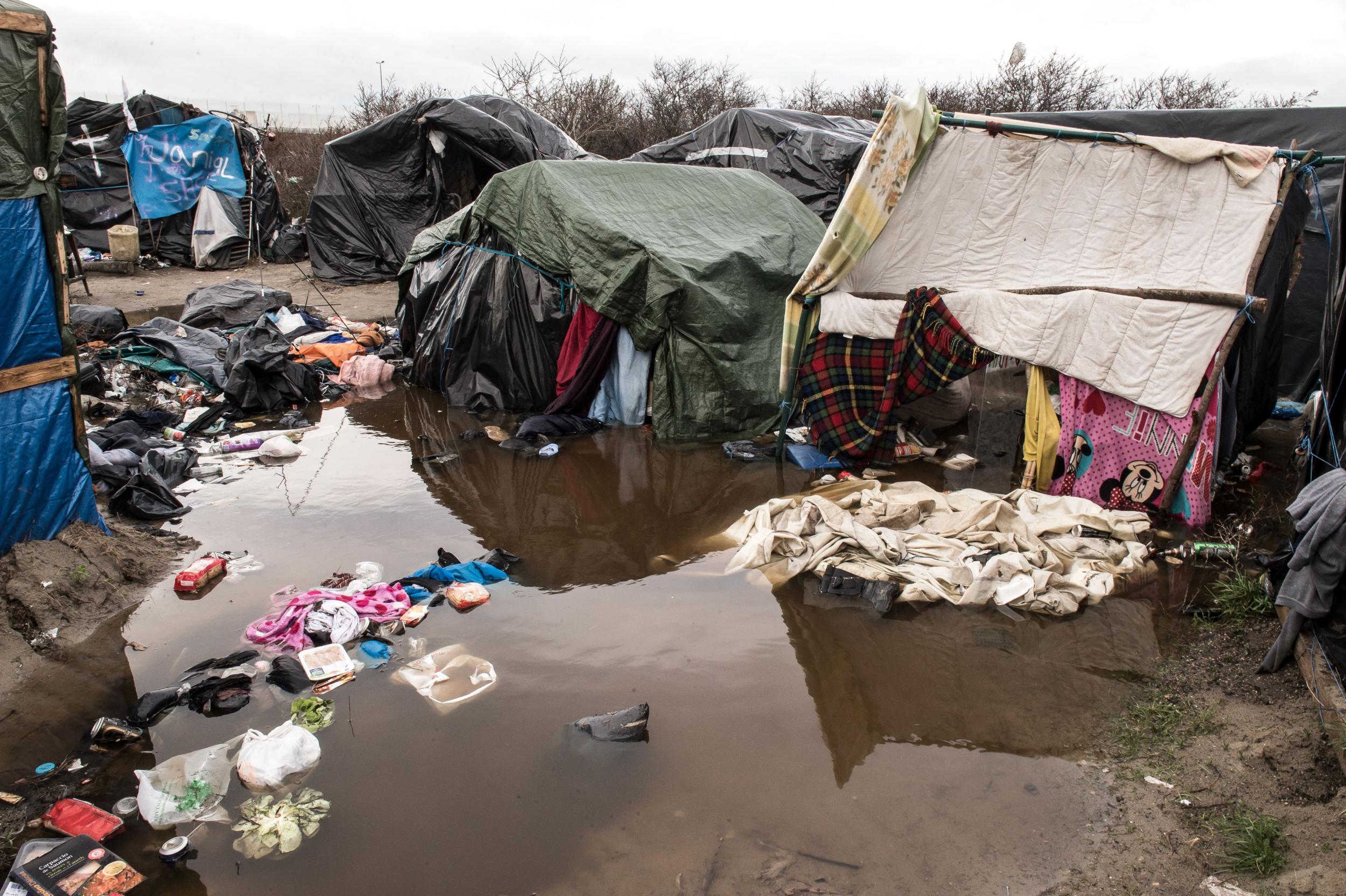Calais Jungle: French government to clear out 1,000 refugees
Paris also plans to demolish medical, aid and legal centres, libraries, mosques, schools and kitchens

The French government has told over 800 refugees currently living in the so-called Calais Jungle that they will be expelled from the camp in the next few days.
The planned clearance of the southern section of the camp will also involve the demolition of three mosques, one church, three schools, a women and children's centre, youth centre and legal lentre.
Also going is the vaccination centre credited with containing an outbreak of measles in the camp, the Jungle Books Library, a theatre and three hot food distribution points that currently serve 2,000 meals each day.
In a statement, the French government estimates 800 to 1,000 refugees will be affected by the clearance, which they state will take place "within a week".
If clear signs of movement are observed within the camp, a stay may be granted until the affected refugees have managed to salvage their shelters.
However, aid organisations such as Help Refugees suggest the actual figure is likely to be twice as high, as around 2000 people currently live in the area earmarked for clearance. The demolition of 7 hectares of homes will also approximately half the area of the camp.
And following reports of repeated violent assaults on refugees in the Calais area, there is added pressure to complete the move before riot police move in to clear out any remaining refugees.
Help Refugees, one of the grassroots aid organisations operating in the Jungle, described the communal spaces being demolished as providing "much-needed respite and comfort for those living in the incredibly difficult conditions in the camp".
The southern area of the Jungle is the district where the majority of familes with young children live. The women and children's centre within the demolition area provides shelter to some of the most vulnerable individuals living in the Jungle, while the youth centre is seen as an essential point of aid for the camp's many unaccompanied young boys.
A Help Refugees statement added: "The move will once more uproot those who have already had to abandon their homes fleeing war and persecution. The eviction also threatens vital community facilities, built and maintained by many organisations including Help Refugees, residents of the camp and volunteers."
The announcement follows the demolition of shelters housing around 2,000 refugees earlier in January.
On that occasion, refugees and volunteers were told by the local government that they had five days to move the shelters before bulldozers moved in, prompting panic in the camp as workers scrambled to clear the affected area and ensure no one was left homeless as temperatures dropped below freezing.
And on 1 February, French authorities gave just one hour's notice before demolishing an area of the camp containing a major church and mosque, contradicting original promises that these structures would remain untouched.

These demolitions and clearances are understood to be part of a move by French authorities to push all of the Jungle's inhabitants into new, basic housing built out of old shipping containers, and clear out the rest of the camp altogether.
However, there is only enough space in the 125 refabricated shipping containers provided by the government to house around 1,500 people, far fewer than the estimated 6,000 people who currently reside in the Jungle.
Moreover, critics say the new accommodation lacks such basic amenities as kitchens and communal spaces.
Many refugees are also suspicious of the government-sponsored camp and its biometric security system, which they feel could easily be used to curtail their movement as they continue to seek asylum.
They also fear that taking up residence in the new camp will reduce their chances of being granted asylum in the UK by tying them to a specific location in France, albeit one that offers no prospects for employment or genuine security.
As they work to help people move their possessions and shelters into areas of the camp which are not under immediate threat of demolition, aid agencies continue their urgent search for donations, volunteers and support.
Join our commenting forum
Join thought-provoking conversations, follow other Independent readers and see their replies
Comments
Bookmark popover
Removed from bookmarks